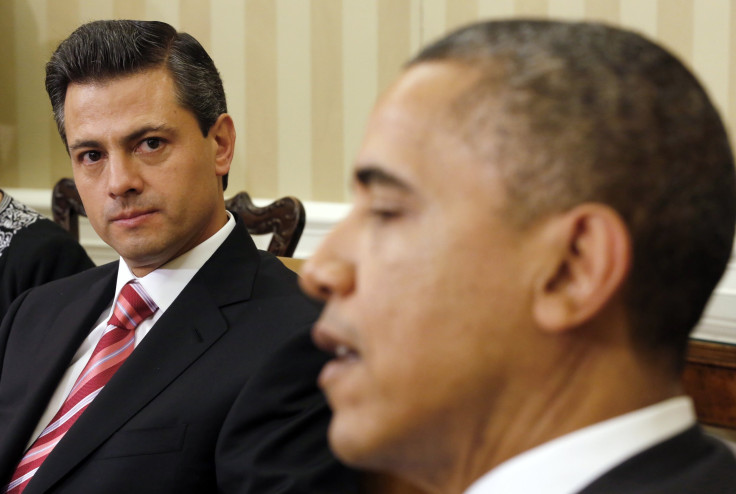
In his second day in Mexico, US President Barack Obama spoke at the National Museum of Anthropology in Mexico City before an audience composed largely of students in addition to politicians, academics and civil-society representatives, according to Reforma.com. In his speech, Obama told the audience that "a new Mexico is emerging" - one with greater economic power as well as deepening strength in its democratic institutions - and called for the expansion of trade and commerce links between the two countries while saying that Mexico had the right to decide how it would approach the issue of drug-related crime. He also acknowledged that drug crime in Mexico was driven partly by US demand for drugs and a steady supply of weapons from US sellers, and indicated that he was optimistic that the US Congress would pass legislation overhauling the nation's immigration system.
The speech signals a clear sea change in relations between the two countries. Mexico President Enrique Peña Nieto has made gestures indicating that he would not seek to extend the close relationship between US and Mexican intelligence and security agencies which began under the previous administration headed by Felipe Calderón. Peña Nieto's administration will seek to change tack on the Mexican state's strategy of combating drug-related crime, shifting from one emphasizing the takedowns of kingpins to one focused more on maintaining peace. As many as 70,000 people have reportedly died as a consequence of drug-related crime in the last six years after Calderón's administration kicked off its US-backed campaign of arrests and prosecutions.
The Washington Post had previously reported that under the Calderón administration, the United States and Mexico had collaborated on intelligence and security efforts to an unprecedented extent. While the US provided technology including electronic signals technology, ground sensors, voice-recognition gear, cellphone-tracking devices, data analysis tools, computer hacking kits and airborne cameras that could read license plates from three miles away, Mexico gave the US the green light to fly drone aircrafts over Mexican airspace to gather intelligence on suspects.
In an interview with Spanish newspaper El País yesterday, members of the #YoSoy132 student movement had suggested that the two countries' cooperation on intelligence and security issues, which included the sharing of classified state information, amounted to an intervention on Mexican sovereignty. Obama appeared to make reference to the claim - or similar ones coming from other quarters - dismissing it as a "distortion".
Yesterday El País also reported that during a joint press conference held in the National Palace of the Mexican capital, Peña Nieto had insisted that the new relationship between the two countries "not be centered on a single issue" as in the past but that a new emphasis be placed on their economic links.
In January, a World Bank study found that inequality had fallen in Mexico since the North American Free Trade Agreement entered into effect on January 1st, 1994. The same day, thousands of armed Zapatistas seized control of major cities, towns and ranches in Chiapas state in protest of the accord. The rebellion was also a rejection of a political process which, since the 1970s, had moved bit by bit toward the industrialization of the Mexican economy and the privatization of rural community lands.
© 2024 Latin Times. All rights reserved. Do not reproduce without permission.